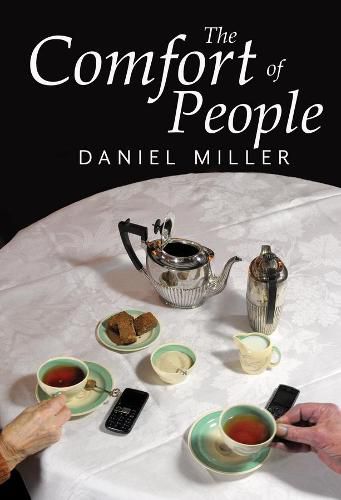Readings Newsletter
Become a Readings Member to make your shopping experience even easier.
Sign in or sign up for free!
You’re not far away from qualifying for FREE standard shipping within Australia
You’ve qualified for FREE standard shipping within Australia
The cart is loading…






At the end of life, our comfort lies mainly in relationships.
In this book, Daniel Miller, one of the world’s leading anthropologists, examines the social worlds of people suffering from terminal or long-term illness. Threading together a series of personal stories, based on interviews conducted with patients of an English hospice, Miller draws out the implications of these narratives for our understanding of community, friendship, and kinship, but also loneliness and isolation.
This is a book about people’s lives, not their deaths: about the hospice patients rather than the hospice. It focuses on the comfort given by friends, carers and relatives through both face-to-face relations and, increasingly, online communication. Miller asks whether the loneliness and isolation he uncovers is the result of a decline of English patterns of socialising, or their continuation.
This moving and deeply humane book combines warmth and sharp observation with anthropological insight and practical suggestions for the use of media by the hospice. It will be of interest not only to students and scholars of anthropology, sociology, social policy and media and cultural studies, but also to healthcare professionals and, indeed, to anyone who would like to know more about the role of relationships in the final stage of our lives.
$9.00 standard shipping within Australia
FREE standard shipping within Australia for orders over $100.00
Express & International shipping calculated at checkout
At the end of life, our comfort lies mainly in relationships.
In this book, Daniel Miller, one of the world’s leading anthropologists, examines the social worlds of people suffering from terminal or long-term illness. Threading together a series of personal stories, based on interviews conducted with patients of an English hospice, Miller draws out the implications of these narratives for our understanding of community, friendship, and kinship, but also loneliness and isolation.
This is a book about people’s lives, not their deaths: about the hospice patients rather than the hospice. It focuses on the comfort given by friends, carers and relatives through both face-to-face relations and, increasingly, online communication. Miller asks whether the loneliness and isolation he uncovers is the result of a decline of English patterns of socialising, or their continuation.
This moving and deeply humane book combines warmth and sharp observation with anthropological insight and practical suggestions for the use of media by the hospice. It will be of interest not only to students and scholars of anthropology, sociology, social policy and media and cultural studies, but also to healthcare professionals and, indeed, to anyone who would like to know more about the role of relationships in the final stage of our lives.